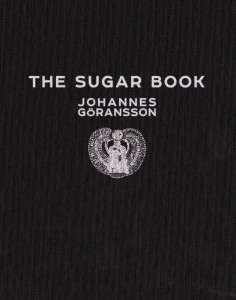 And it’s a brilliant, in-depth review at that, thanks to reviewer James Pate, who begins with Eugene Thacker’s concept of “Planet” and dials down to The Sugar Book‘s glittery guts of Los Angeles.
And it’s a brilliant, in-depth review at that, thanks to reviewer James Pate, who begins with Eugene Thacker’s concept of “Planet” and dials down to The Sugar Book‘s glittery guts of Los Angeles.
Writes Pate:
Planet, which is the “world-without-us” … is difficult to grasp, being non-human and against our humanist assumptions about history, meaning, consciousness (as Thacker points out, consciousness itself is simply a roll of the evolutionary dice). In fact, he argues, some of the best attempts to deal with the idea of Planet come not from philosophers themselves, but from what he calls “dark mysticism” and from the horror genre. Horror, in both literature and film, has often challenged the humanist World with various emanations of Planet, “expressing them not in abstract concepts but in a whole bestiary of impossible life forms — mists, ooze, blobs, slime, clouds, and muck.”
I bring this up because Johannes Göransson is one of the major poets of this concept of Planet, and also because he often uses genre (horror, but noir too) to help convey this sense of the non-human. Poetry, of course, has long dealt with the nonhuman, going all the way back to the Epic of Gilgamesh, and some of the best contemporary poetry addresses these non-humanist realms. Lara Glenum, Joyelle McSweeney, Arda Collins, Feng Sun Chen, Rauan Klassnik, Ariana Reines, and Lucas de Lima all write powerful poems relating to Planet. Göransson’s particular focus is the intersection of the nonhuman with masquerade, or how the undermining of human-centric assumptions leads to a sort of ontological/political masquerade.
In Göransson’s poetry, there is no self-congratulation about being on “the right side of history.” History, having no human face, no Mind, and no anthropomorphic Hegelian Spirit, has no sides. There are only events. There’s only Los Angeles….
Göransson is a controversial poet. He’s been labeled a fascist, a misogynist, and many other things as well by some critics. I suspect it’s this tendency on his part to not draw clear dividing lines between such tensions (liberation/exploitation, love/hate, anarchism/capitalism, real life/Art, dominance/submission) that drives some readers up the wall. Göransson is certainly of the Left, but his work is as savagely anti-idealist as Burroughs or Guyotat or Ballard. Like those writers, he has no interest in assuring the reader that she or he lives, along with the poet, on the right side of history….
At a time when the language of austerity has become so prevalent, so enmeshed in our culture and media, and when even certain sectors of the left sometimes seem caught up in the logic of austerity and lack and no, the genius and challenge of Göransson’s book is that it says no and yes at the same time. Destroy Los Angeles. Become Los Angeles. Have your cake and eat it too.